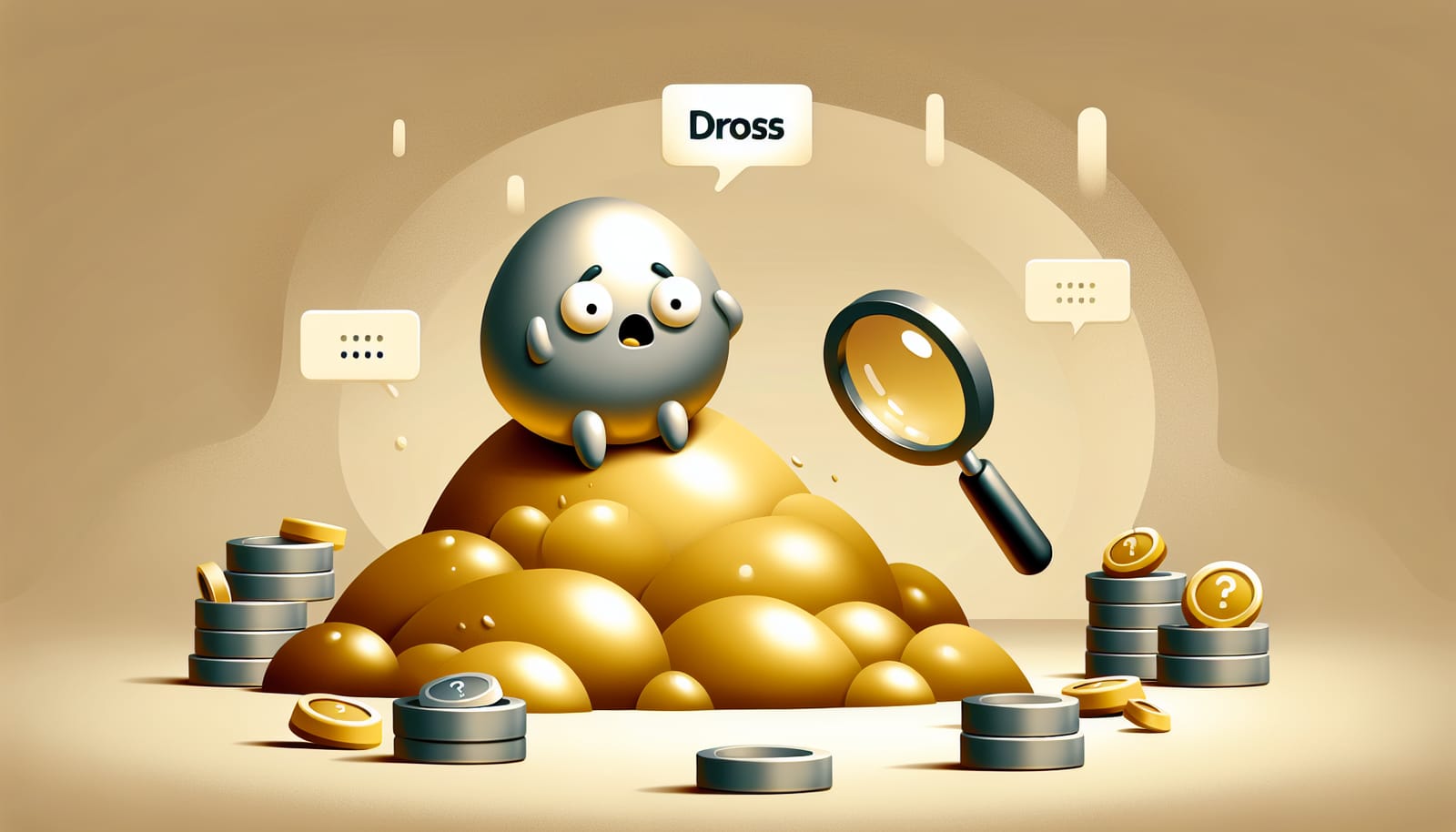-
Waste or impure matter; something regarded as worthless.
synonyms:wasterefuse -
The scum formed on the surface of molten metal.
synonyms:slagscum

The word 'dross' comes from Old English 'dros', which meant 'dregs' or 'sediment'. Its roots can be traced back to Proto-Germanic and Proto-Indo-European languages, signifying something that is left over or unwanted.
Dross is commonly used in both everyday language and technical contexts, particularly in metallurgy and recycling discussions.
While not used daily by most people, 'dross' appears in specific contexts such as discussions about metalwork or metaphorical uses in literature.
After the smelting process, the workers carefully removed the dross from the surface of the molten metal.
The poet used the term dross to describe the superficial concerns of society, contrasting them with deeper, more meaningful pursuits.
In her critique, she dismissed the dross of modern media, arguing that it distracts from genuine discourse.
The word 'dross' might sound like something you’d find in a chemistry class, but it has a rich history and a versatile use in language! Originating from Old English, it initially referred to the unwanted residues in metalworking. Over time, it took on a broader meaning, describing anything considered worthless or of low quality. Whether you're discussing the byproducts of a manufacturing process or using it metaphorically in a conversation, 'dross' adds a touch of sophistication to your vocabulary while reminding us to sift through the unnecessary to find what truly matters.